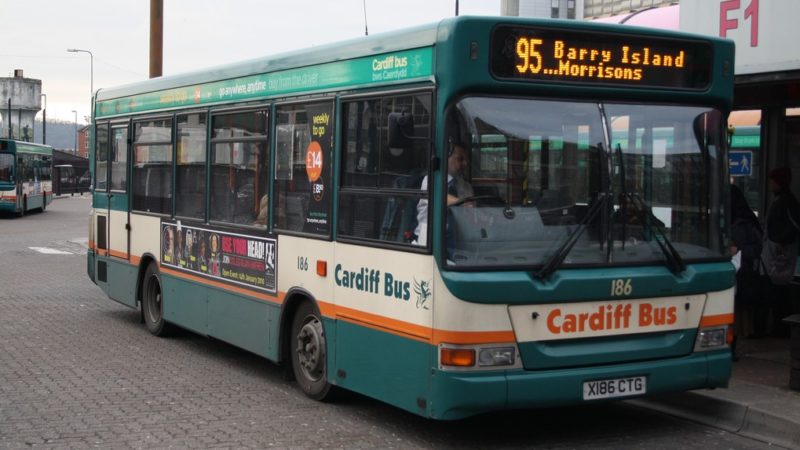As England bans new any new council involvement in bus services, the Welsh government is leading a counter-charge.

It was one of Margaret Thatcher’s many ideological attacks on public services – and now the Welsh Government may be about to reverse it.
In 1985, Thatcher’s Transport Act banned councils from setting up bus companies. Not only that, it encouraged existing ones to be sold off.
The result? A bizarre outsourced system of subsidies, rising fares and route-cutting, generally at the behest of large transport companies. Companies who often operate as effective local monopolies anyway – just ones who pay dividends to their shareholders rather than savings for taxpayers.
Now though, the Welsh government is leading a counter-charge and showing progressive, devolved politics can reverse the tide of privatisation.
Under the 1985 Act, local authorities had to transfer their publicly owned bus companies to ‘arms-length’ companies, controlled independently, but still owned by the local authority.
With changing administrations and councils looking for a quick buck, many of them were fully privatised anyway – only eleven in the UK are left now, including two in Wales and one in Scotland.
Of those left – they are shining examples of what locally-owned public services can look like. Municipal Reading Buses is currently the UK Bus Operator of the Year:
And campaign group Transport for Quality of Life estimate that, across the UK, public ownership would save us £506 million a year – excluding London.
But in April this year, the Tories’ Bus Services Act 2017 went further than Thatcher’s ban. They included a clause to ban all new public bus companies, including arms-length companies. That means no more attempts to introduce greater competition or provide accountable local transport. In England, at least.
New proposals from the Welsh government – due to be published at the end of this year – will allow councils to set up their own council-run bus companies. The response to the idea has been highly positive – 80% of representations to the consultation were supportive of the plans. The opponents? You guessed it – big bus firms.
A spokesperson for public-ownership group We Own It told Left Foot Forward:
“We know that publicly owned bus companies are some of the best in the country – winning awards and breaking records for customer satisfaction. So we’re really pleased that the Welsh government is moving towards reversing this outdated and ideological law in Wales, where bus services have suffered under privatisation.”
A 2014 study for the Public Policy Institute for Wales, by Professor John Preston, indicates that bus companies in Wales could be making as much as £22 million more than a normal return on sales – money which could be going directly into improving local services rather than lining company pockets.
This isn’t the first of the Welsh government’s counter-Thatcherite moves. In March this year, Carwyn Jones’ cabinet introduced legislation to scrap the controversial ‘Right to Buy’ housing policy.
As England goes back to the ’80s, Wales is looking towards democratic, community-owned services. Hats off to them.
Josiah Mortimer is Editor of Left Foot Forward. Follow him on Twitter.
See also: Wales just scrapped the worst of the Tories’ union-busting law
Left Foot Forward doesn't have the backing of big business or billionaires. We rely on the kind and generous support of ordinary people like you.
You can support hard-hitting journalism that holds the right to account, provides a forum for debate among progressives, and covers the stories the rest of the media ignore. Donate today.




One Response to “After decades of privatisation, Wales may be about to re-nationalise local transport”
Simon Lewis
Truly marvellous idea